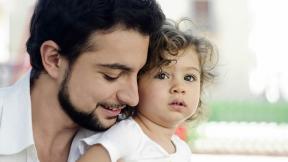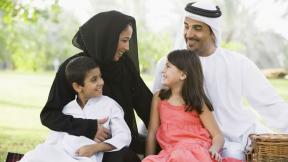
So, you are a parent of Muslim children in public school (in a majority non-Muslim country). Welcome to the club! Congratulations, for making it this far into the school year! If you are reading this article, it means you and your children survived tricky holidays like Halloween and Thanksgiving with your faith intact, inshaAllah, God willing. That is no small feat, so feel free to pat yourself on the back. You are doing great!
Now, almost halfway through this educational cycle, you will be facing the most challenging time yet: the Christmas holiday season. Mariah Carey’s catchy Christmas tunes have flooded the airways, and the spirit of the season is in full effect, complete with lights, décor, and plenty of cheer. Muslim parents, however, may not be feeling the joy as their children struggle to make sense of this festive time while staying true to their identity.
I am a member of several mom’s groups on social media, and around this time of the year, lots of parents start asking questions related to how we can navigate the holidays without being offensive to our Christian and Jewish friends. Some of the questions I have encountered are things like “Can I participate in my company’s holiday party?” or “Should I contribute to my community’s Secret Santa gift exchange?” or “How can I respond when a neighbor drops off Christmas cookies?” Answers vary depending on what people find in online fatwa banks or the opinions of individual mothers who take different approaches when dealing with their own holiday drama. Among the many questions mothers are asking, one issue stands out most: what to do about the holidays in public schools. The short answer is be prepared.
Make a List and Check it Twice
As Muslim parents, we want to be unapologetic about our beliefs and we also want our children to be confident. Here is a list of dilemmas and potential solutions for parents of children in public schools during the winter season.
Dilemma: The holiday break is approaching, and we know it is a time of gift-giving and merriment. Do we give gifts to our children’s teachers, bus drivers, cafeteria workers, and other school staff?
Solution: While I personally do not send out Happy Holiday gifts or cards to school with my children, I understand why some Muslim parents may be compelled to do so. We want to be appreciative of teachers while also making sure our kids do not feel alienated when their classmates are giving them presents. I converted to Islam when I was twenty years old, so I went through the public school system as a Christian. My parents would always help me pick out gifts to give to my teachers right before holiday break and at the end of the school year. The tradition was not to celebrate the holidays, per se, but rather to honor my teachers and show them our gratitude. If you prefer to do the same, then make the intention of gift-giving as a Prophetic practice and opt for a generic gift with a thank you note instead of a Christmas-themed gift. The Prophet Muhammad, peace and blessings be upon him, said:
“Give each other gifts and you will love each other.”
(Al-Adab al-Mufrad, 594)
Another idea is to give gifts focused on relaxing and enjoying winter break. School staff will certainly appreciate some scented candles, fuzzy socks, or a new warm blanket to snuggle in during their much-needed rest. If you prefer not to partake in gift-giving, you are not alone. Just prepare your child ahead of time and reassure them you will be sending in gifts at a later date like during Ramadan, Eid, or teacher appreciation week. Or, better yet, just any time you want to show your appreciation!
Dilemma: Your child’s school has an elaborate holiday light or Christmas and Hanukah display. They also host a holiday-themed party for students. You feel like it may be confusing for your child or making them question why we do not celebrate the same holidays.
Solution: Be proactive in having positive dialogue with your child about other cultures and religions, learning to respect other people’s beliefs while understanding our own boundaries. Use this experience as motivation to make our own holidays even more special for your children. Reach out to the school and ask if you can help them create a holiday display for Ramadan when the time comes, so your child will feel equally represented and happy. Other Musim families will appreciate it, as well.
Dilemma: Your child’s teacher announces they will be decorating gingerbread houses or cookies in school as a special holiday-themed activity. He/she sends in a list of the ingredients that students will use in case of any potential allergies. You feel uneasy, especially because you are not sure if the jellybeans, marshmallows, and gummy candy they may be working with are halal. What do you do?
Solution: Decorating baked goodies is a fun and yummy activity for kids, no matter what time of the year it is. As a matter of fact, one of my family’s Eid traditions is baking moon and star-shaped sugar cookies and decorating them with frosting and sprinkles. If you do not want your child excluded from this particular activity, contact the teacher and let her know about our diet restrictions as Muslims. Graciously volunteer to purchase all the ingredients the children will need, ensuring they will all have halal options to work with. Believe me, your child’s teacher will thank you! Through your effort, the teacher will then understand what products contain pork, alcohol, or their derivatives, and will avoid them in the future.
Dilemma: The school has provided coloring pages and/or activities with Santa Claus and other Christmas or Hannukah themes to your child. When your child brings these home, it is upsetting to you and your family.
Solution: It cannot be overemphasized that communication is key to avoid many of the misunderstandings that can occur during the school year with regards to Islamic beliefs and practices. Communicate with the teacher about your family's views and request alternative activities that align with your values. Many schools are open to providing non-religious or neutral activities, such as winter-themed coloring pages that focus on snowflakes or animals. These can be super cute and enjoyable to all the students without compromising their faith.
Dilemma: This year, there will be a holiday card-exchange in the classroom. Your child’s teacher understands that not all her students celebrate Christmas, but she still wants to promote the spirit of the season with a card-exchange. While it is a step in the right direction, it still feels like it could be pushing the limits.
Solution: Discuss with the teacher the possibility of your child creating and exchanging cards that focus on friendship or general well-wishes, rather than specific holiday themes. This allows participation without compromising beliefs. Another idea is to have your child make Islamic themed cards where they can write about the holidays we celebrate instead. Education is a gift too! Alternately, the teacher could provide your child another art project to work on while the other students decorate their cards.
Dilemma: Your child’s non-Muslim teacher wants to give a gift to each student for the holidays. How do you respond? (This question also applies to those of us who have non-Muslim family, friends, or neighbors who like to give us gifts during their holidays.)
Solution: There are two potential solutions to this dilemma. The first is to accept the gift. If you know about her intentions ahead of time, you can suggest that the gift is not Christmas-themed in nature since it is not part of our tradition. Otherwise, you can allow your child to take the gift, say thank you, and plan to reciprocate during our own holidays. In my very humble opinion, this is closer to the Sunnah, as the Prophet, peace and blessings be upon him, accepted gifts from non-Muslims as indicated in the following hadith:
Ali ibn Abi Talib reported that the Prophet, peace and blessings be upon him, was given gifts by Khosrau and he accepted them. Kings would give him gifts and he would accept them.
(Sunan al-Tirmidhi, 1576)
Additionally, Abu Qabus reported:
A woman asked Aisha, may Allah be pleased with her, “We have a nurse among the Magians and they give us gifts on their festivals.” Aisha said, “As for the meat they have slaughtered, do not eat it. Rather, you may eat from the fruit of their trees.”
(Musannaf Ibn Abī Shaybah, 31986)
Regarding the above, Ibn Taymiyyah said: “These narrations demonstrate that their festivals do not prevent Muslims from accepting their gifts. Rather, the rule during the festival is the same as other times, since it does not involve support for their rituals of unbelief.” (Iqtiḍaʼ al-Ṣiraṭ al-Mustaqim, 250)
The second solution is to politely explain to the teacher that your family does not celebrate these holidays, and suggest alternative ways to include your child, such as recognizing their achievements or contributions in class. No matter which you choose, do express gratitude for their thoughtfulness and suggest exchanging gifts during Ramadan and Eid or at the end of the school year.
Dilemma: My child is in music class, and they are learning Christmas carols or holiday songs in the classroom. Or the school is having a winter play and some of it involves singing or listening to holiday tunes.
Solution: Music class is one of those iffy subjects that are considered a requirement in many school districts. On the one hand, it can be a valuable part of the curriculum, and on the other, it may introduce children to music and lyrics that are questionable and even haram. Music class can benefit Muslim students by enhancing their historical and cultural understanding, improving vocal skills useful for Quranic recitation, and fostering cognitive and emotional development. However, some Muslim parents opt to take their children out of music altogether – that may help nip things in the bud.
For those who did not, if your child’s teacher decides to incorporate Christmas music into his or her lessons when the holidays come around, have a respectful conversation with the music teacher, explaining your family's perspective. Request that your child skip class and go to the library, be given an alternative assignment, or allowed to participate in a different way, such as playing a drum instead of singing. Ask them to include a lesson about the tradition of Ramadan drummers in some Muslim countries, so the children can learn about religious differences. I have found that many schools are willing to accommodate such requests without a fuss.
Dilemma: My child’s classmate is Muslim, but their family celebrates Christmas. They even put up a Christmas tree at home! He told my child there is nothing wrong with that because we also believe in Prophet Jesus. What should I tell my child?
Solution: Anywhere in the world where Muslims and non-Muslims are living side by side, and especially in majority non-Muslim lands, some of our traditions may begin to overlap, causing some people to incorporate different practices that they perceive as harmless even though they are not part of our religion. Explain to your child that different families have different circumstances, understandings, and practices. Emphasize the importance of respecting others' choices while also being proud of and adhering to your own beliefs and values. Use this as an opportunity to discuss the importance of learning the Quran and the Sunnah, so we can implement Islam according to authentic sources of knowledge.
At the same time, children should know not to judge or ridicule their classmates or anyone about the status of their faith (Muslim or non-Muslim). Remind them that Allah says in the Quran:
“O believers! Do not let some ˹men˺ ridicule others, they may be better than them, nor let ˹some˺ women ridicule other women, they may be better than them. Do not defame one another, nor call each other by offensive nicknames. How evil it is to act rebelliously after having faith! And whoever does not repent, it is they who are the ˹true˺ wrongdoers.”
(Surah Al-Hujarat, 49:11)
Making Holidays Happy Again
When it comes to public school, sometimes a simple letter to teachers and administration at the beginning of the year to explain our beliefs and instructions about dietary restrictions will set the tone for the remainder of the year. However, a reminder will not hurt, so draft up a new letter before the winter break to remind your child’s teacher about how your family prefers to approach holidays like Christmas, Hanukah, New Year’s, Valentine’s Day, and Easter. Also volunteer for a special visit to the school to read a book about Ramadan or Eid and bring along some Islamic-themed goodies to share with the students, so they can also feel special about Muslim holidays.
Despite your best efforts, your child will likely come home with numerous questions during the holiday season about Christmas, Christians, and related topics. Be prepared to address these inquiries thoughtfully while grounded in your beliefs. To provide a solid comparison and aid in answering their questions, start creating excitement around Eid celebrations. For instance, you might say, "Yes, your classmates are as excited about Christmas Eve as we are about the last day of Ramadan, because it means they will celebrate and receive gifts the next morning!" This approach helps children understand that different people have different celebrations, just as we have our own unique festivities with Eid. Additionally, emphasize to your child that being different is a positive thing, and encourage their confidence in embracing their identity.
Further Reading Recommendations
Call a family meeting about Christmas
A Green Christmas: Jesus’ Birthdate in the Islamic Tradition
Teaching Muslim Children about Christmas
10 Things Christians Should Know About Muslims And Jesus
My Kids Want to Celebrate Christmas, Help!
Wendy Díaz is a Puerto Rican Muslim writer, award-winning poet, translator, and mother of six (ages ranging from toddler to teen). She is the co-founder of Hablamos Islam, a non-profit organization that produces educational resources about Islam in Spanish (hablamosislam.org). She has written, illustrated, and published over a dozen children’s books and currently lives with her family in Maryland. Follow Wendy Díaz on social media @authorwendydiaz and @hablamosislam.








Add new comment